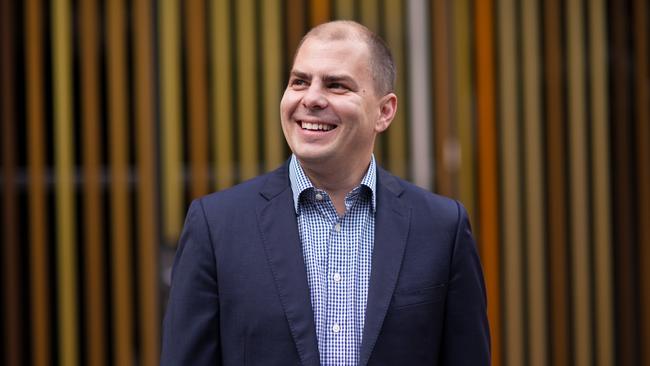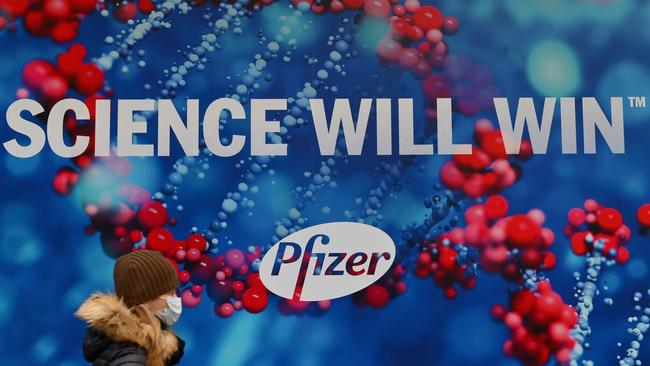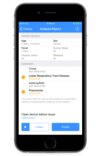Pfizer v ResApp shareholders in tussle for promising biotech

ResApp is working on a smartphone app to analyse the sound of a person’s cough to detect Covid-19. If it succeeds, the machine learning algorithms could transform coronavirus testing worldwide.
That prospect has a block of defiant retail shareholders in the $100m biotech up in arms about a sale, both on price and for selling out local know-how to Big Pharma. For strong views, head to HotCopper or Twitter.
In the other camp are those who want to sell, including the board of ResApp – which is urging shareholders not to look a gift horse in the mouth.
They say Pfizer’s all cash bid, at a 62 per cent premium to the share price before it came on the scene, is fair and backed by an independent expert report. And they warn that knocking back the bid leaves ResApp in a precarious position.
ResApp is burning through cash and needs new capital to develop its product.
The biotech market has been smashed. The first half of 2022 was the worst for local biotechs on record, according to investment research produced by Bioshares, with 129 small and medium-cap listed companies falling by over 41 per cent and appetite for risk plummeting. To be approved, the takeover requires support from 75 per cent of the votes on the day and half of the shareholders.
Fidelity, a substantial shareholder with 9.9 per cent of the company, and a former director holding 5.6 per cent of the stock have not publicly declared their hand. But because ResApp is such a highly held retail stock, it may well be the number of shareholders in favour that is more important.
“The board is confident going forward that it will go through,” says ResApp chief executive Tony Keating. Both he and co-founder Brian Leedman acknowledge the disquiet among some investors. “A small company like ResApp has done great things with a small team that really believe in the technology and they invested a lot of time in company. I’m very thankful for how passionate our shareholders are,” says Keating. “This is a decision for those shareholders to make.”

ResApp listed in 2015, offering smart healthcare from a mobile phone to diagnose and manage respiratory disease. It grew out of work at the University of Queensland that used sound to diagnose respiratory disease, funded by the Bill and Melinda Gates Foundation. The last six months have been a wild ride for Keating and Leedman. In March, ResApp announced exciting results from a clinical pilot on its new Covid-19 cough screening app that accurately detected 92 per cent of people with the virus.
In April, Pfizer made its first bid for the company at 11.5c a share, a 27.8 per cent premium to the last closing price. With market conditions worsening the board unanimously recommended the bid.
However, the deal was subject to an independent expert report. That report, completed by BDO in May, found that fair value for shareholders was higher: a range of 14.6c to 27.7c, with a preferred value of 20.7c.
Separately, Pfizer agreed to help fund ResApp with a six- month licence agreement, including an upfront $3m fee and further milestone payments.
On June 14, Pfizer lobbed a second bid with two tiers: it offered 20.7c if ResApp’s exciting pilot results were confirmed in a wider study but only 14.6c if they were not. A week later, the results came in. And they were disappointing, falling short of the same high sensitivity threshold of the pilot. It meant the bid price dropped back to 14.6c, valuing the business at $127m and cutting $53m in upside.
Leedman admits the latest results were disappointing for the board. “If not for that we would have been sitting at the higher end. But the board negotiated the bottom end in the event we could not confirm the result so still a win-win for shareholders.”
Some shareholders strongly dispute that, believing the bid by Pfizer robs them of the true upside, which the pharmaceutical giant will inherit.
Victor Wilk was one of many retail investors who bought into the float in 2015 with a holding of about 1 per cent. “Do I think that’s what the shares are worth? No, I think they’re potentially worth a lot more than that,” Dr Wilk said after the second bid.
Others put the value at well over $1bn, pointing to historic valuations by Patersons and Morgans. But both these firms have stopped following the company.
On July 27, ResApp’s quarterly report delivered a reality check – $4.1m of the $4.2m in receipts from customers had been driven by the Pfizer licence agreement. And there was cash on hand of $2.3m. ResApp is burning between $1m and $2m a quarter. The BDO report put the ongoing cost of commercialisation at $13.6m.
Keating remains confident that ResApp algorithms can detect Covid-19 cough sounds but there is more work to be done. The machine learning technology has 1300 additional cough sound recordings with gold-standard PCR test results to progress.
“If the vote is no, we will need to raise money immediately,” Keating says. “That would have implications for the share price, and anyone in the biotech or medical device industry at the moment knows the capital market is really tough. Most biotechs globally are trading at below their cash value.”
Leedman says the board had been hoping for a bigger lift in the share price after the first groundbreaking Covid-19 results.
“We were talking to Pfizer prior to the results. Had the share price been higher prior to the Pfizer bid I’d have expected their price would have been higher,” he says. “To be fair to Pfizer, its current offer values the company at an 80 per cent premium to what the shareholders themselves valued it on the initial Covid results.”
Some shareholders accuse Keating of a conflict of interest by voting his shares in favour of the deal while planning to work for Pfizer. But while Pfizer intends to keep the development team together, Leedman says there is no guarantee. Furthermore, Keating owns only 10 million shares of the 860 million shares on issue.
Without a deal Pfizer’s continued funding of ResApp’s research after the licence agreement expires in October is uncertain.
Bioshares analyst Mark Pachacz, who still covers the stock, says the Pfizer bid is a “fair, reasonable bid given challenges lie ahead in commercialising this technology, highlighted by recent clinical trial results showing further work needed on algorithm”.
Shareholders looking for more might ask if a local billionaire is interested. Or Apple Health, to put some tension in the game. There has been no formal approach by any other party.





On August 19, buried in the middle of reporting season, shareholders of ASX-listed biotech ResApp will have a big decision to make: whether or not to sell the business to Pfizer.